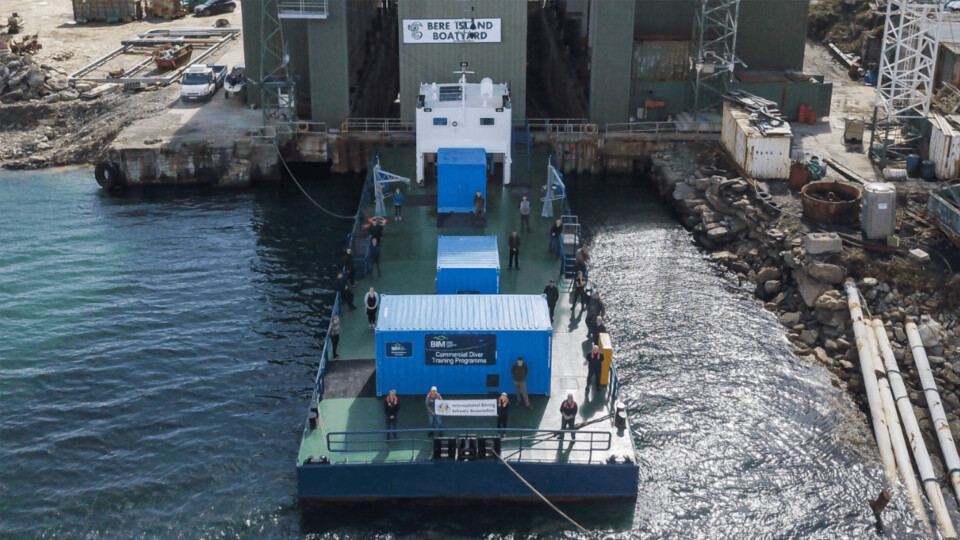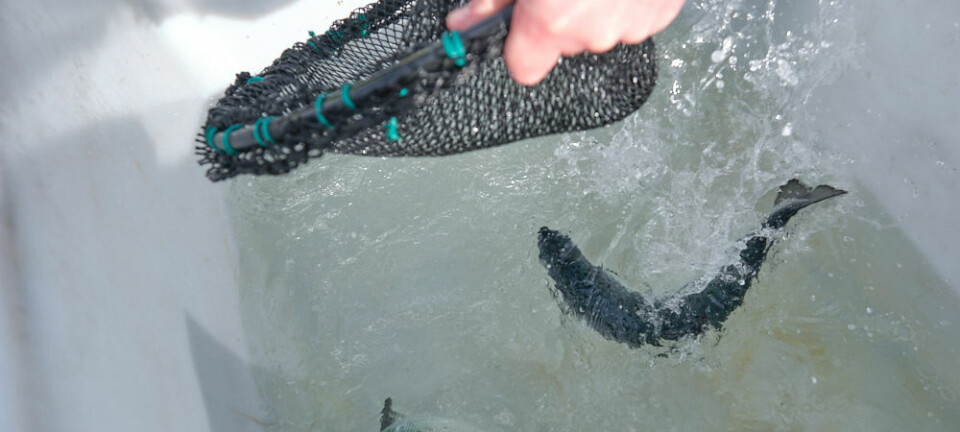
Hybrid barge savings show a way ahead for Irish seafood
Reductions in carbon emissions and fuel consumption achieved by using a hybrid-powered diving barge in Ireland show the potential for similar systems to be used in the country’s aquaculture and fishing industries, a college boss says.
Divers taking part in training programmes run by Ireland’s seafood development agency, Bord Iascaigh Mhara (BIM), are benefiting from the new barge two months on since its launch at BIM’s National Fisheries & Diving College of Ireland (NFCI) in Castletownbere, West Cork.
The barge that includes a decompression chamber, surface supplied diver unit and welfare accommodation is run by a hybrid battery powered system that has offset significant carbon emissions and resulted in cost savings.
Better than expected results
College principal Captain Shane Begley said results have exceeded expectations.
“BIM has always viewed this project as a pilot to test the viability of using a battery and generator powered system in a marine training environment,” explained Begley.
“We set out, with our project partners Bere Island Boatyard and Daretech Technologies, to reduce the carbon footprint and operational costs of the barge, and also to measure the emission offsets and possible cost savings.
“What’s exciting about this project is that now that we’ve seen the results, we can now begin to explore how this system might be applied to other parts of the seafood industry such as aquaculture feed barge vessels and possibly fishing vessels in the future.
“Another feature of the system is that the power management of the system (i.e., the battery & generator) and system monitoring happens remotely, more than 70 miles away.”
The power sources for diving barges previously hired by BIM for use on its commercial diving programmes were typically 40kwh diesel generators. These powered all of the lighting and underwater cutting and welding tools used by students. Two petrol and diesel-driven compressors were also used for previous BIM diver operations.
86% less fuel
Begley said: “BIM is now using a hybrid system comprising a 50kwh battery and generator and the petrol and diesel-driven compressors have been fitted with electric motors, so they now run on electricity.
“What now happens is that the battery, charged by the generator as required, powers all the electricity requirements for the barge and the diving operations, from the lighting and sockets, compressors, underwater burning to the welding equipment.
“The heat from the generator is also harvested and used to dry the diver dry suits and under suits. The result is an 86% fuel saving and a carbon emission offset of 5,800 kg. Furthermore, the generator kicks in when the barge is vacant, and charges the battery, and this results in no noise or emissions while diving operations are taking place.”























































